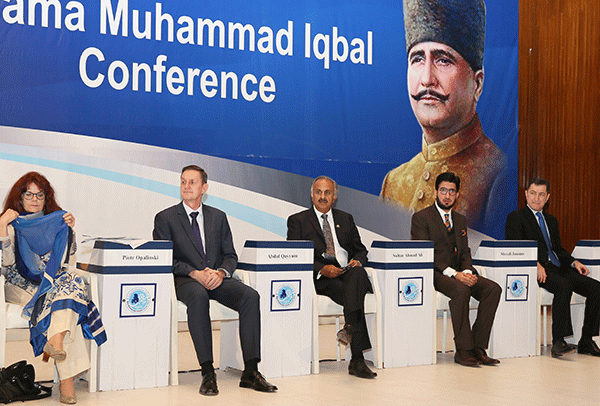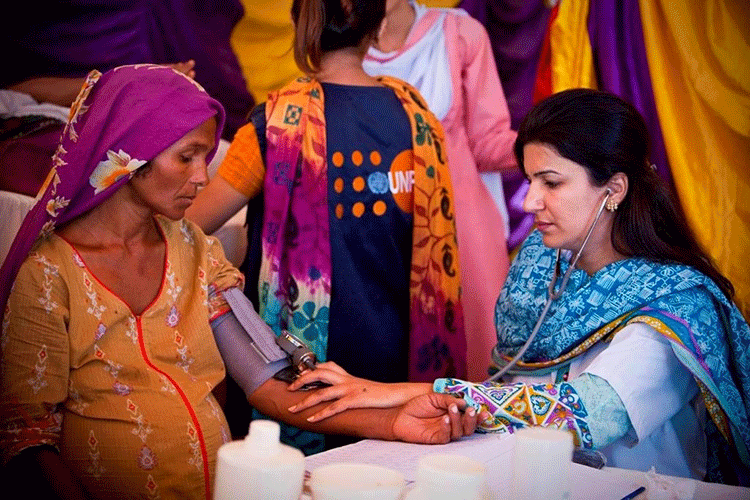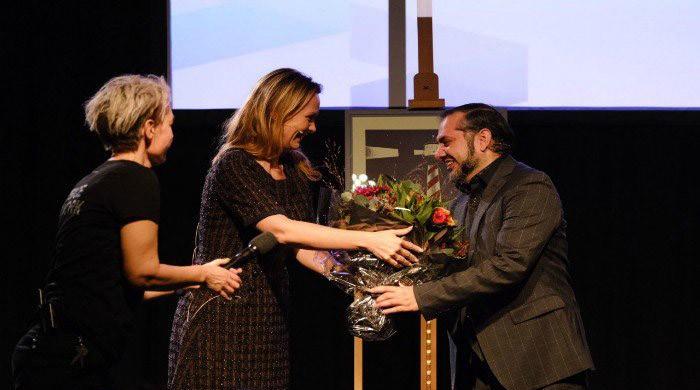ISLAMABAD November 2018: An Islamabad based think tank ‘MUSLIM Institute’ organizes one day national Allama Muhammad Iqbal Conference at national library auditorium in commemoration with birth anniversary of Iqbal. Speakers highlighted the need to rediscover the philosophy of Iqbal in letter and spirit. Amongst distinguished speakers were Prof. Dr. Marcia Hermansen, Director, Islamic World Studies Program, Loyola, University of Chicago, USA, H. E. Mr. Sherali Jononov, Ambassador of Tajikistan to Pakistan, H. E. Mr. Piotre Opalinski, Ambassador of Poland to Pakistan, Sahibzada Sultan Ahmad Ali, Chairman MUSLIM Institute, Lt. Gen. Abdul Qayyum (Retd), Chairman, Senate Committee on Defense Production, Senate of Pakistan, Mr. Riaz Ahmed, Assistant Professor, Lawrence College, Murree, Dr. Umair Mahmood Siddiqui, Assistant Professor, Department of Islamic Learning, University of Karachi, Dr. Muhammad Idress, Vice Chancellor, Hazara University, Mansehra. Prof. Dr. Suheyl Umar, former director, Iqbal Academy of Pakistan, Lahore, Prof. Jalil Aali, Writer, Poet and columnist, Air Vice Marshal Faaiz Amir (Retd), Vice Chancellor, Air University, Islamabad. The conference was organized to strengthen as well as inculcate the ideas and philosophy of Iqbal in our youth. It has become difficult to find the “Shaheen” of Iqbal today. We should not keep on reprimanding this loss rather we should reconstruct Muslim philosophy and theology based on the principles of Islam while keeping in view the contemporary challenges faced by the Muslim world. We should revitalize the vitality of “Ijtehad” in this modern era which is badly needed to reconstruct our social order. There is a dire need to bridge the gap between secular extremists and religious extremists. Acquisition of knowledge does not merely aim at reading books or gathering factual knowledge rather it is based upon the character building of an individual which is the primary subject of Iqbal’s philosophy. It also aims to train an individual socially and morally so that he can play an effective role in the uplift of a society. Education of characters is the need of the day. Researchers admitted that the philosophy of Iqbal is the key to emerging global challenges. Speakers emphasized that we should dealt with our social, ideological and psychological issues by taking guidance from the philosophy of Iqbal. We need to revisit our curriculum and train our teachers in the light of Iqbal’s vision in order to achieve fundamental objectives of education. Modern technology has mended human behaviors in a materialistic manner which has resulted in decay of moral values. Iqbal envisions morally sound, ideologically creative and knowledge friendly youth. We need to compete the world while maintaining the establishment of Islamic philosophy. Money and material cannot provide contentment to a human being. In this respect, Iqbal was deeply inclined towards spirituality. Iqbal was deeply convinced against the dichotomy of religion with politics. In 1931, while addressing in London, Iqbal emphasized that the Europe would have avoided the destruction of world war one if the west have not separated church with politics. At that time, Iqbal envisions peace in Afghanistan a prerequisite to the world peace. This precept of Iqbal is equally relevant today. The world can no longer be peaceful following the unrest in Afghanistan.
From our Print Edition









